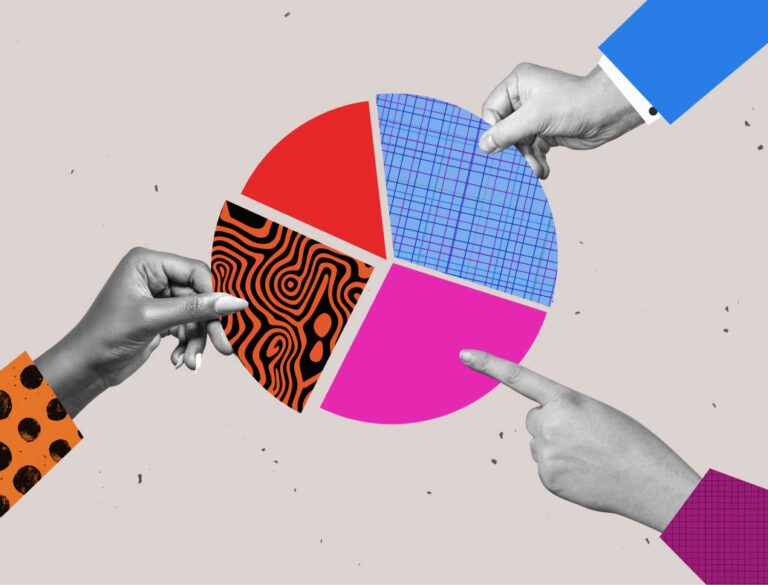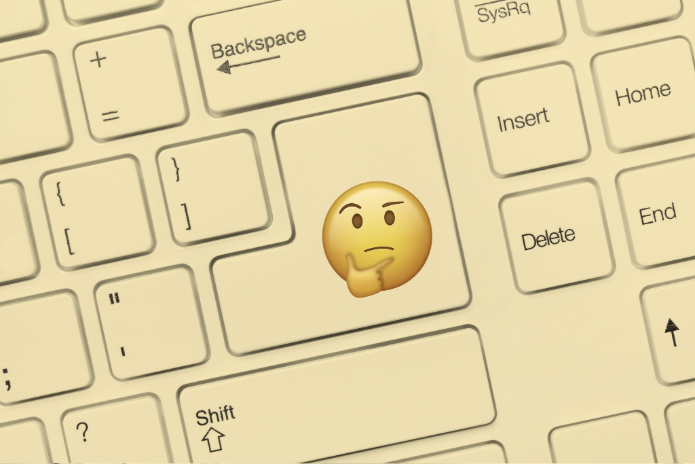Elon Musk is a singular figure in the business world celebrated for revolutionizing entire sectors, such as the automobile, space exploration, among others AND, at the same time, much criticized for controversial managerial decisions.In recent years, especially after the acquisition of Twitter (now renamed X), his leadership style has been scrutinized by HR and technology professionals in search of lessons on psychological profile and behavioral risks.
Studying the profile of Elon Musk from the point of view of organizational psychology reveals an atypical leader. According to an analysis conducted by the experts of Hogan Assessments, nothing in his trajectory indicates that Musk is “ crazy, narcissistic or malevolent” adjectives often released by critics. Instead, what emerges is the image of an extremely enterprising capable, ambitious the Hogan methodology even suggests three keys to understanding your personality at work: cognitive ability, entrepreneurial orientation, and your interpersonal style.
A technical knowledge out of the ordinary
Perhaps not everyone who follows the news about the entrepreneur knows, but Elon Musk accumulates a great deal of technical knowledge. A graduate in Physics and Economics, ends up joining knowledge about numbers, technologies and finances - in a deeper way that most people. Colleagues state that he has an acute perception to anticipate business trends, and identify flaws in the reasoning of others. This intellectual confidence translates into agility in decisions: Musk is not a fan of rigid long-term plans 'he goes into action and learns from the result, adjusting the course as necessary.
As far as the psychological framework is concerned, Musk embodies the archetype of the tireless entrepreneur.Hogan data indicates that successful entrepreneurs tend to be analytical, solve problems based on data, work energetically (not infrequently 100 hours a week), fear no risk, and are highly competitive and impact-oriented.
Musk mirrors this profile: he is famous for his extreme work ethic and for pursuing audacious goals. Features such as courage to take high risks, intense dedication and focus on concrete results are pointed out as essential ingredients of his success, regardless of his exceptional intelligence. In other words, Musk combines brilliance with a lot of commitment 'he thinks big and works hard to materialize his visions. This structured orientation towards ambitious goals partly explains how he managed to found and scale multiple companies in different sectors in such a short time.
Musk's perhaps most controversial facet is his style of dealing with people. He himself revealed to have Asperger syndrome (autistic spectrum condition), something relatively common among engineers and entrepreneurs of technical profile. Close people have described him as the “alma of the” party on social occasions, someone humorous, irreverent and mischievous outside of work.
In the professional environment, however, Musk adopts a highly demanding posture.He defines himself as a manager “nano” i.e., he takes micromanaging to the extreme . I.E., impatient and quick to point out defects. Concerns about team feelings or kindnesses are not at the top of his daily priorities. Like many leaders of technical origin, he values performance and delivery above diplomacy.
Two extremes
Hogan's analysis suggests that Musk is a hugely successful visionary as an entrepreneur, but a middling leader in terms of people management.This does not set him apart so much from other tech giants: the theory called “ Apple”, The Steve Jobs reference shows that brilliant leaders can be difficult in personal dealing and yet build high-performing organizations.
In practice, Musk relies on subordinate managers to tone down his tough style with employees, while he focuses on big strategic decisions.This combination yields remarkable results, but not without internal friction.
Even the qualities that propelled Musk to the top can become behavioral risks when taken to the extreme.Hogan Assessments uses the concept of derailers to describe personality traits that, under stress or pressure, can “sabote” a leader's performance.In recent years, Elon Musk has often been associated with two derailers in particular: excessive perfectionism and extreme self-confidence.
Musk's perfectionist trend has worked well in the past with Tesla.But on the old Twitter & current X 'THE entrepreneur took a big risk of disrupting the agility and morale of the team.This clearly shows that strengths in personality, without proper adjustment to context, can take a leader's career off the rails.
Musk's extreme self-confidence has also led him in the past to exchange the hallowed brand of Twitter for a new name“” A radical change and that would certainly be done otherwise by any other organization. However, Musk's personality leads him to have a supreme “conviction in himself and his visions, defying all odds.The risk here is to overcome the limits of prudence 'believe that his intuition is enough, even in the face of contrary companies of experts or the market. The rebranding of Twitter, widely seen as precipitated, illustrates how Musk's self-confidence can generate repercussions on the innovative part of genius but implied in being a daring part of being a controversial value can be.
Impacts on Twitter management: governance, culture and performance
Before the acquisition, Twitter was a publicly traded company with a board of directors, almost 7.5 thousand employees and an internal culture focused on content moderation and long-term projects.After the acquisition in October 2022, Musk closed the company's capital (going to control it fully), dissolved the board and dismissed most of the senior management. Then implemented a drastic overhaul in the governance, culture and strategy of the platform. What were the results?
Musk promoted massive staff cuts.In a few weeks, about half of the employees were dismissed. Months later, in an interview, Musk himself revealed that there were about 1,500 of approximately 8 thousand original employees left 8 thousand employees 80% of the board. Along with the dismissals, Musk sent an ultimatum to the remnants to embrace a culture of work “extremely hardcore” with long hours and high intensity, or ask for shutdown. Many chose to leave. This culture shock deeply transformed the day to day in the company, replacing the work of the extreme engineering and teams.
“Working on Twitter under Musk is not for the weak”, summarized a former employee anonymously. From an HR perspective, this change raises debates: on the one hand, reducing staff and increasing pressure can eliminate bureaucracy and accelerate deliveries; on the other, risk losing talent, institutional knowledge and team motivation in the long run.
What about Twitter or X?
In 2024, Platform X delivered mixed financial performance.Although it achieved an adjusted profit of approximately US$ 1.2 billion in EBITDA (earnings before interest, taxes, depreciation and amortization), total revenue fell to about US$ 2.9 billion, a significant reduction compared to US$ 4.4 billion recorded in 2022, prior to the acquisition by Elon Musk.
A significant factor affecting the profitability of X is the debt service acquired during the purchase of the platform by Elon Musk. Currently, the annual debt service costs are estimated at US$ 1.2 billion, which represents a substantial portion of the company's total revenue.
In terms of market valuation, X recovered its value to US$ 44 billion in 2025, matching the price paid by Musk in the acquisition of the company. This recovery was driven by new investments and the appreciation of artificial intelligence startup xAI, from which Musk transferred a 25% stake to X investors.
Relationship with Donald Trump
In addition to the performance of his companies, Elon Musk deals today with the consequences of his public positions and political alliances, in particular his relationship with current US President Donald Trump. From a reputational point of view, this association has polarized Musk's image as a business leader.
If on the one hand he gained admiration and influence in conservative circles there are those who see him as a defender of freedom of expression and antagonist of alleged “censuras of Silicon Valley (on the other hand he seriously compromised his image with center and left audiences. On the other hand, Musk also raised new allies. Groups and entrepreneurs aligned with the ideology of free market and minimal regulation celebrate their partnership with Trump, hoping for mutual benefits Musk would have open doors in Washington, and the Trump administration would benefit from Musk's experience and innovative seal. In fact, Musk has become a kind of ambassador of the tech sector within the Trump administration.
Between pros and cons, and controversies, understanding Elon Musk's leadership profile requires accepting his paradoxes. He can be both visionary and unpredictable; inspiring and feared; progressive in certain causes and reactionary in others. For the HR and technology sectors, Musk reinforces the importance of evaluating leaders holistically considering not only the financial results they achieve, but how they achieve them and at what human and reputational cost.
His career offers lessons on the importance of balancing ambition with self-awareness.No leader is above feedback or blind-spot free. Elon Musk continues to challenge boundaries & IT's up to us, analysts and professionals, to critically follow these movements, learning from their successes and mistakes in the quest to form effective, ethical and resilient leaders in a world of rapid change.
By Roberto Santos, managing partner of Atelier RH











